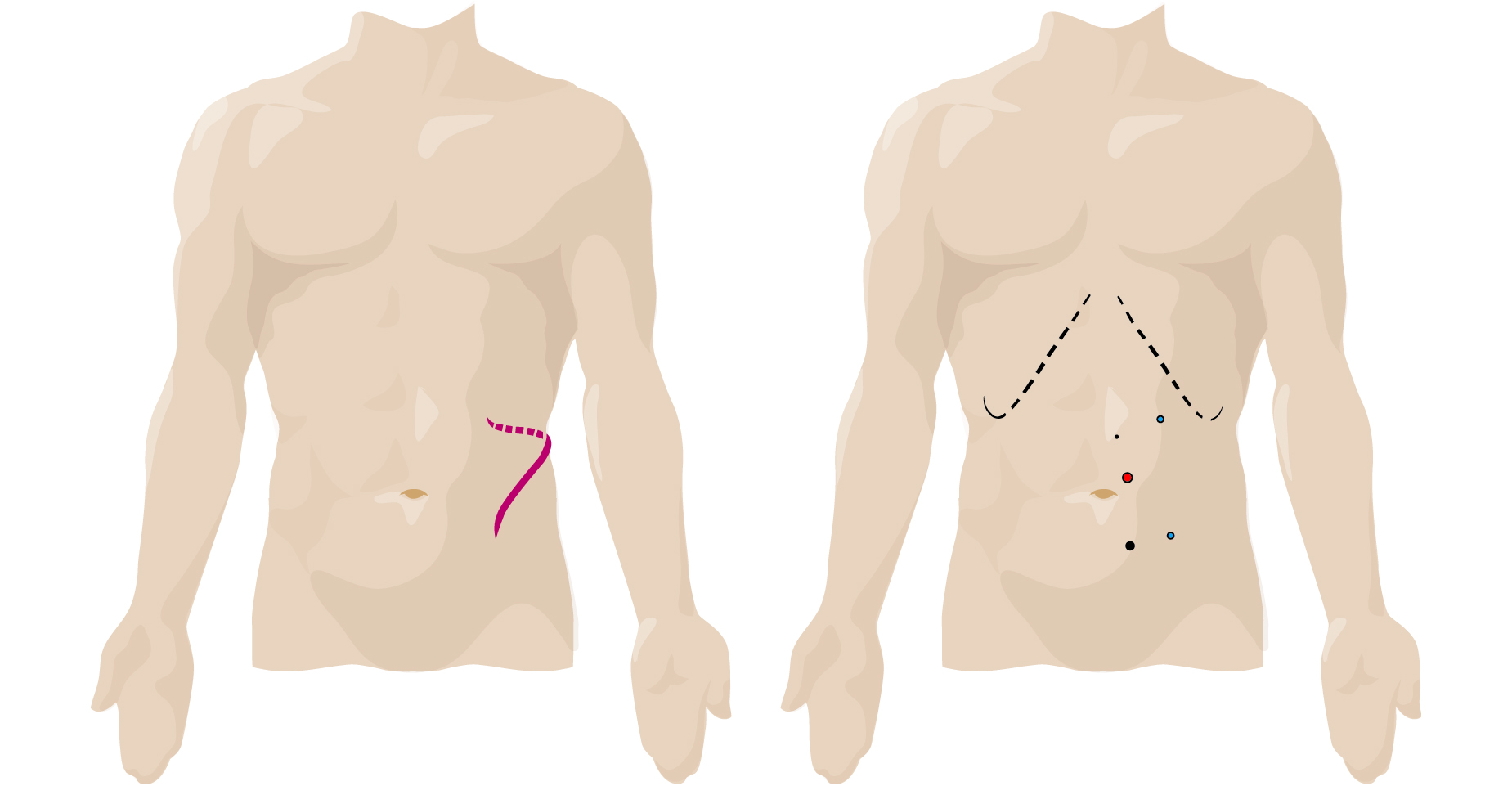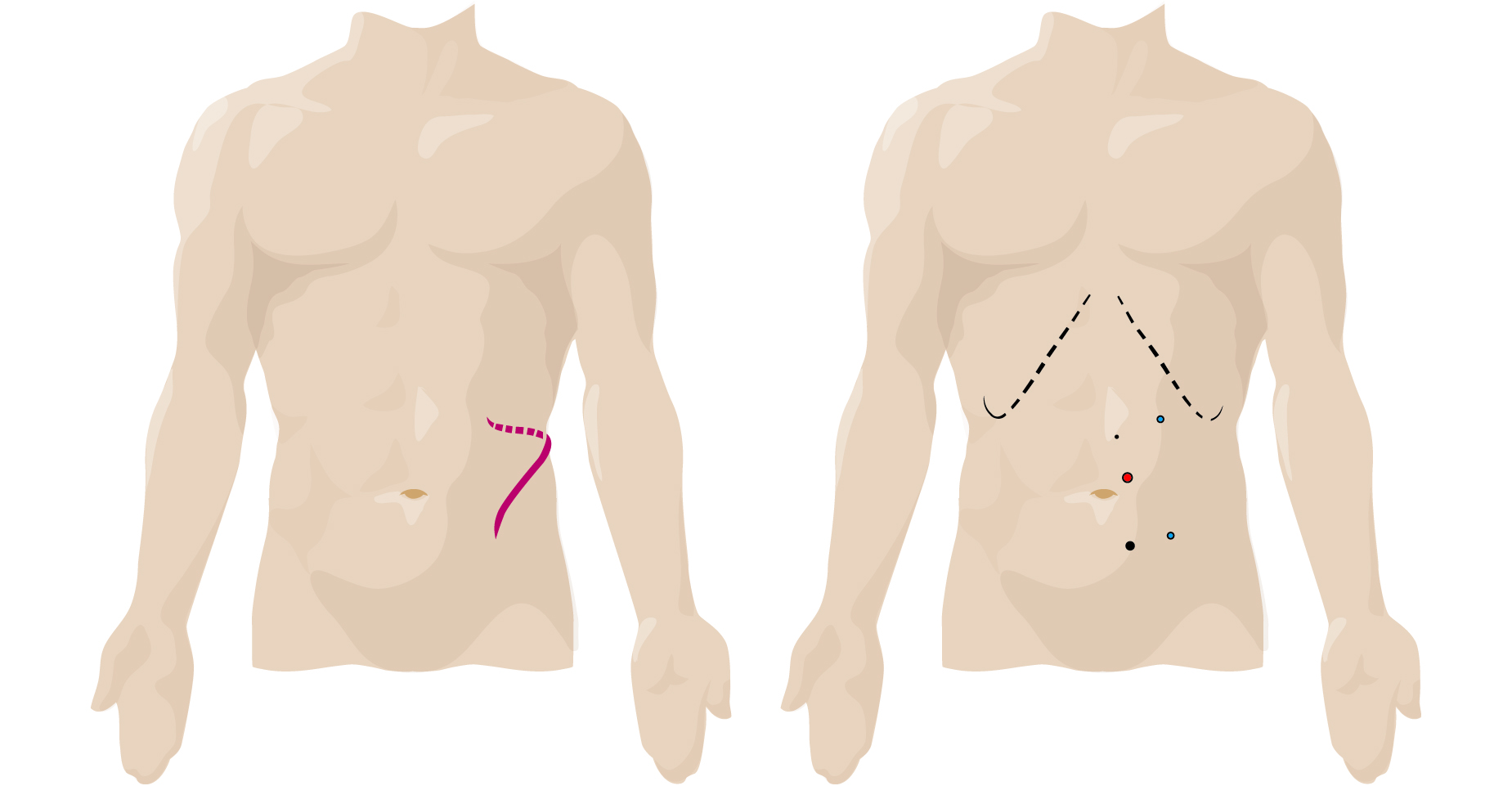Risks
- Bleeding. Bleeding from the kidney after the operation can occur in approximately 2% of cases. This may require a further procedure or return to theatre to correct.
- Infection. Wound infection is rare but may require a course of oral antibiotics to correct.
- Positive surgical margin. This is where tumour extends to the edge of the specimen submitted to the pathologist. If may or may not indicate residual tumour at the operation site.
- Cancer recurrence. Following partial nephrectomy it is unusual to see cancer recurrence however Mr Thyer will undertake 6 monthly CT or ultrasound imaging for 3-5 years to check for recurrence.
- Urine leak. Rarely urine may leak from the site of the partial nephrectomy. This may require a further procedure to correct.
- Conversion to open partial nephrectomy. Occasionally a tumour is more difficult to resect than anticipated using the laparoscopic or robotic technique and conversion to open approach is required.
- Conversion to radical nephrectomy. If Mr Thyer suspects the tumour is more advanced or invasive than the imaging suggested then conversion to a radical nephrectomy (removal of the whole kidney) may be required to remove the tumour safely.
- Injury to surrounding structures. The bowel, liver, spleen, adrenal, pancreas and large blood vessels are close to the kidney and may require repair if injured during the dissection.
- There are risks with any general anaesthetic which are very rare including blood clots, heart or lung problems and adverse drug reactions. The anaesthetist will discuss these with you at the time of the procedure.
Follow up
Mr Thyer’s rooms will contact you to arrange follow up to check your progress, wounds and pathology 2-3 weeks following the operation. You should take laxatives, wear compression stockings, drink plenty of water and avoid heavy lifting for 3 weeks following the procedure. You should not drive a motor vehicle until seen by Mr Thyer at the follow up appointment.
Following the procedure, you should contact Mr Thyer if you:
- Have a fever over 38 Degrees
- Are unable to pass urine
- Have large clots in the urine
- Have not received a follow up appointment
- You can contact Mr Thyer via his rooms during working hours or after hours via the after hours nurse at Hollywood Hospital on (08) 9346 6000
- You can attend the emergency department at the hospital at which you had your procedure. (Hollywood Private Emergency Department charge a fee for attendance).

